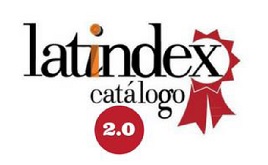Analysis of the non-domiciled income tax in permanent establishments: digital services, technical assistance and know-how (period 2018-2019)
DOI:
https://doi.org/10.53641/junta.v2i2.37Keywords:
Non domiciled, permanent establishments, digital services, technical assistance, know howAbstract
This technical work seeks to analyze the non-domiciled income tax in the following permanent establishments (EP): digital case services, technical assistance and royalties, within the 2018-2019 period. First, with respect to the non-domiciled income tax of permanent establishments, the Executive Branch, through Legislative Decree No. 1424, has not only given and updated the definition of EP, but can no longer be modified by Decree Supreme, as it could be when the definition was merely regulatory. Likewise, the law has tried to give some content to the concept of “preparatory or auxiliary activities” by delineating a definition of this concept, but everything that is not essential and significant for the entity’s activities would seem confusing. Finally, within the assumptions contained for the configuration of an EP in the CDI, signed by Peru with Chile, Canada, Mexico, Portugal, Korea and Switzerland (not Brazil), the well- known “service EP” has been included, considered, In addition, technical assistance and know-how; however, in the case of digital services that are performed by a non- domiciled company in Brazil, the 15% rate will apply; if it is from Switzerland, 10%; and if they are not domiciled subjects of Canada, Chile, Korea, Mexico and Portugal, of 0%, only provided if they are not considered EP.
Downloads
References
AELE. (2011). Guía Comparativa entre CDI celebrada por el Peru: tratados vigentes disponibles.
AELE. (2008). Tratados tributarios celebrados por el Perú. 2da edic
Barrex et al. (2007). Integración Regional y Armonización Tributaria: Desafíos y Experiencias en América Latina. BID
Duran, L. (2008). Diferencias en el tratamiento de la noción de establecimiento permanente en la legislación nacional y los CDI y su consecuencia en la tributación en el Perú por beneficios empresariales de sujetos no domiciliados. Revista Análisis Tributario, 1.
Falcón, R. y Pulido, G. (2012). Derecho Fiscal Internacional. Madrid: Marcial Pons Informe N° 021-2005-SUNAT/2B0000.
Legislación económica – Legis Perú. (2014). Régimen Tributario Peruano.
León, S. (2016). Tributación de la economía digital: ¿hacia un nuevo paradigma de establecimiento permanente (EP)?
Ley del Impuesto a la Renta modificada por Decreto Legislativo No 1120. (18 de julio de 2012)
Manual de Procedimiento de Fiscalización Internacional. (2013). Material Didáctico utilizado por los auditores de la SUNAT
Muñoz, S. (2008). Los servicios digitales como supuesto de renta de fuente peruana.
OCDE. Modelo de CDI. Sec. 42.11, 1era Oración. Com. OCDE Art. 5, 7 y 12
Peña, J. (2018). Tratamiento Tributario del Establecimiento Permanente.
Presidencia de la República. (13 de setiembre del 2018). Decreto Legislativo N° 1424.
Presidencia de la República. (23 de diciembre del 2003). Decreto Legislativo N° 945.
Presidencia de la República. (02 de julio del 2004). Decreto Supremo No 086-2004-EF Price Waterhouse. (2016). Texto comparativo de los Convenios para Evitar la Doble Imposicion Internacional. 1era. edición
Ramos, J. (2016). Fiscalidad internacional de los servicios de asistencia técnica en la legislación doméstica y en los CDI suscritos por el Perú.
Yañez, L. (2010). Tratamiento de los establecimientos permanentes ubicados en el exterior de empresas domiciliadas en el Perú.
Yañez, L. (2012). Los servicios como establecimientos permanentes: ¿son realmente una pesadilla, y si lo son, para quién?. Cuadernos Tributarios (32): 13-124.
Downloads
Published
How to Cite
Issue
Section
License
Copyright (c) 2021 Jorge Enríquez Moreno, Angela María Cobos Apaz

This work is licensed under a Creative Commons Attribution 4.0 International License.








